- All
- [Open Science Policies]
- Auvergne-Rhône-Alpes
- Bourgogne-Franche-Comté
- Brittany
- Centre-Val de Loire
- Corsica
- DROM-COM
- Grand Est
- Hauts-de-France
- Île-de-France
- Normandy
- Nouvelle-Aquitaine
- Occitania
- Pays de la Loire
- Provence-Alpes-Côte D'Azur
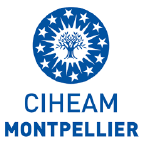
CIHEAM Montpellier
Established in 1962, the International Centre for Advanced Mediterranean Agronomic Studies (CIHEAM) is a Mediterranean intergovernmental organisation composed of 13 Member States (Albania, Algeria, Egypt, France, Greece, Italy, Lebanon, Malta, Morocco, Portugal, Spain, Tunisia and Turkey).
It operates through its 4 Institutes based in Bari (Italy), Chania (Greece), Montpellier (France) and Zaragoza (Spain) and the Headquarters based in Paris.
As a key player in multilateral cooperation in the fields of sustainable agriculture and fisheries, food systems, coastal and rural development, its missions revolve around four main objectives:
- Protection of the planet by combating all forms of waste: waste of natural resources, food waste and waste of knowledge and know-how;
- Food and nutrition security by boosting sustainable agriculture and food systems;
- Inclusive development by investing in new generations and fragile territories;
- Prevention of crises by managing tensions and working for the resilience of communities.

National veterinary school Toulouse
The National Veterinary School of Toulouse (ENVT) is one of the four French National Veterinary Schools and one of 12 public higher education establishments in the fields of agronomy, veterinary science and forestry under the supervision of the Ministry of Agriculture and Food.
Research activities at the ENVT are carried out in 14 research/departmental or technological units, either within the school itself or in joint research units (UMR) in partnership with INRAE, INSERM, UT3 Paul Sabatier, CNRS and CIRAD.
Read more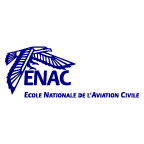
ENAC
ENAC is internationally recognized as the leading aeronautics and aviation university in Europe, providing a broad range of training, studies and research activities.
Our institution provides a comprehensive range of 28 higher education programs ranging from Bachelor to Master of Science, Aviation Advanced Master, Master of Business and Administration as well as Ph.D.s in the domains of aeronautics and aviation.
Since its creation in 1949, ENAC has provided professional training to civil aviation personnel such as Air Traffic Controllers, ATSEPs and technicians for Civil Aviation Authorities (CAA) or Air Navigation Service Providers from all over the world (e.g. China, Switzerland, EuroControl, Indonesia, Philippines, Brazil, Africa, Georgia, Mongolia, Saudi Arabia).
ENAC alumni work in aeronautical and aviation companies, in fields such as manufacturing (Airbus, ATR, Embraer, Safran, P&W, GE, Rockwell Collins, Thales, Indra), and airports, airlines, civil aviation authorities as well as air navigation providers across the globe.
ENAC is also known internationally for its training of ATPL and MPL pilots for airlines including Air France, Easyjet, Transavia, Sichuan Airline, China Eastern, Shanghai Airline, Lao Airline, Oman Air and Royal Air Maroc.
Innovative ENAC research laboratories work in cooperation with the best universities worldwide to provide a safer, more efficient and more sustainable air transport system.
Read more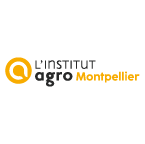
L’Institut Agro Montpellier
L’institut Agro Montpellier is a French public institution devoted to higher education and research in Agriculture, Food and Environment. L’institut Agro Montpellier is widely open to international issues and partnerships, with specific focus and recognized expertise on southern and Mediterranean areas.
L’institut Agro Montpellier offers students and professionals two engineering courses and a wide range of programs following the European LMD framework (Bachelor, Master/Advanced Master, PhD).
L’Institut Agro Montpellier contributes to agricultural research thanks to the involvement of its researcher-professors in 22 research units and 4 joint technology units. l’Institut Agro Montpellier’s scientific teams collaborate closely with major research organizations based in Montpellier (INRAE, CIRAD, IRD…) and regional higher education institutions (University of Montpellier, Paul Valéry University, University via Domitia of Perpignan, CIHEAM-IAMM…). It also manages two experimental agricultural platforms (viticulture, sheep farming, olive cultivation) dedicated to R & D and exchanges with professionals. Knowledge transfer and development take place through the AgroValoMéditerranée business incubation site, a shared platform for setting up and supporting development projects in partnership with INRAE and INRAE Transfert.
Read more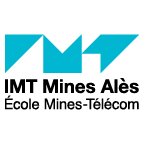
IMT Mines Alès
Among the oldest France’s elite Schools of Engineering, IMT Mines Ales (also known as Ecole nationale supérieure des mines d’Ales) was founded in 1843. The main campuses are located in Ales city, in the south of France, 1 hour from Montpellier.
While proud of its own heritage, it has recently become part of the national ‘Institut Mines Telecom’ (IMT). IMT is the biggest group of Engineering Schools in France (‘grandes ecoles d’ingenieur’: highly selective and prestigious institutions).
IMT Mines Ales’s objectives are to contribute to the economic, technological, environmental and social development. It has put a strong emphasis on its contribution to the Sustainable Development Goals (SDGs) of the United Nations. In 2020, it has ranked 301-400 in the ‘THE Impact’ world ranking dedicated to the SDGs.
IMT Mines Ales conducts research and education in 6 fields of technological expertise covering:
- Civil Engineering and sustainable building design (GCBD)
- Ecomaterials and Processing (ECOMAP)
- Environment, Energy, Risks (2ER)
- Subsurface Engineering and Mining Operations (ISERM)
- Industrial System performance and Mechatronics (PRISM)
- Artificial Intelligence and Software Engineering (2IA)
IMT Mines Ales has 1.400 students (mainly graduate and post-graduate students) including 20% of international students coming from 45 countries. IMT Mines offers many graduate courses, including several international programs fully taught in English (from 1-semester exchange programs to 2-year master curricula). It has 90 international partnerships with foreign universities, including 30 double-degree agreements.
IMT Mines Ales hosts 5 research laboratories, including 2 Joint Research Units with Montpellier University and the French National Centre for Scientific Research (CNRS), which is among the world’s leading research institutions. IMT Mines Ales is also member of 4 doctoral schools and offers various PhD programs to national and international students.
It has very strong connections with the industry and has been the first School in France to create a technological and business incubator. Every year, several start-ups from the incubator get selected to participate to the ‘CES’ international innovation show in Las Vegas.
HAL portal
Open Science Policy
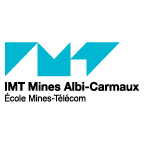
IMT Mines Albi
A school of the ministry of industry, the higher national school of mines of Albi-Carmaux is part of the Mines-Telecom Institute , which is today the first group of schools of engineering and management in France. IMT Mines Albi is also an associate member of the Federal University of Toulouse Midi-Pyrénées and partner to a great number of institutions and prestigious universities in France and abroad. These privileged partnerships make it a welcoming ‘grand école’ and research centre, rich in opportunities, and in economic and professional development prospects. Joining IMT Mines Albi means being part of this network and benefiting from its expertise and the wide variety of opportunities it offers.
HAL portal
Open Science Policy
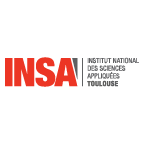
INSA Toulouse
With 14,000 alumni present in all economic sectors, the “Institut National des Sciences Appliquées” of Toulouse, an international, pluridisciplinary, state engineering school, is recognised for the excellence of its five-year education which attracts students of a high academic level and who have obtained excellent results at the Baccalaureat.
INSA-Toulouse provides a range of 8 engineering specialisations, including computer sciences, civil engineering, mathematical engineering and biochemical engineering. Its courses, linked to the latest scientific advances, are supported by the activity of leading-edge research laboratories, backed by large industrial groups, for example in the fields of new materials for aeronautics, environmental protection techniques and nano-objects.
Throughout the course, the students are confronted with concrete, complex projects and problems on which they work in groups, with the help of teachers when requested. No questions, no lectures… is the principle behind this active learning approach, experimented by renowned universities in America and Northern Europe, and now advocated by UNESCO.
The international dimension has been a priority for INSA since it opened and international sections have gradually been set up. On campus, one in five students is an international student.
INSA welcomes students with a wide range of profiles: students with a technological “Baccalaureat”, students opting for a cooperative education alternating periods of academic study and industrial experience and continuing education students.
Being open to the world also involves the student’s commitment to the community which is highly valued and gives ECTS credits as part of the course.
Read more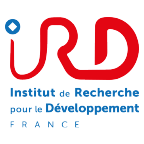
IRD – French National Research Institute for Sustainable Development
HAL Portal
Open Science roadmap

TBS éducation
Formerly known as Toulouse Business School, TBS Education is a business school offering a range of management courses from Bac +3 to Bac +5. It is triple accredited by EQUIS, AACSB and EFMD.
The school has 4 campuses: two in Toulouse (Campus de Lascrosses and Campus d’Entiore), one in Paris, one in Barcelona in Spain (TBS Education Barcelona) and one in Casablanca in Morocco (TBS Education Casablanca).
The Research Centre brings together 6 laboratories working on academic management topics.
Read more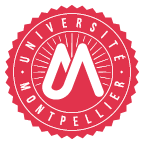
University of Montpellier
For the past 800 years, the University of Montpellier (UM) has strived to address scientific and societal challenges.
With 16 schools and institutes, and 78 research structures, UM brings together a vast community of knowledge ranging from science, technology, medicine, pharmacy, physical and sports activities, to law, political science, economics and management.
UM is a research-intensive university that plays a leading role in the Occitanie region’s dynamism and is resolutely open towards the world. It receives international recognition in numerous scientific fields such as biology and health, agri-environment, chemistry, information and communication sciences and technologies, law and management. Today, with its partners, it leads an ambitious internationally oriented program to further promote Montpellier as a “University of Excellence” acting as a true European portal towards the southern countries.
Read more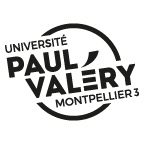
Paul-Valéry Montpellier 3 University
Located in woodland to the north of the city, Paul-Valéry Montpellier 3 University, Faculty of Letters, Arts, Languages, Human and Social Sciences, is named after Paul Valéry, the great writer from Sète. With a registered, labelled “20th century heritage site” campus, just 20 minutes from the city centre by tram, the University enjoys a vibrant setting where Mediterranean vegetation, abundant parkland and numerous works of art combine for the pleasure of students and campus users alike.
Montpellier University was France’s third university, established after Paris and Toulouse. Founded on 26th October 1289 by papal bull under Pope Nicholas IV, it included Faculties of Medicine, Arts and Law. In 1970, these former faculties became three separate Universities, including Paul-Valéry, Montpellier 3.
The university campus is evolving, expanding and transforming. Several projects are currently planned or underway, including a General Resources Building, a new Staff House, or the future “Learning Centre” or Atrium, with its bold architecture, a striking statement at the entrance to the campus.
Opened in 2017, the Saint-Charles site, looking out onto the city, is the University’s research showcase. The site hosts 19 interdisciplinary research teams, a Labex (Laboratory of Excellence), an ERC (European Research Council) programme, an IDEFI (Initiatives of excellence in innovative training) project, as well as Montpellier’s Maison des Sciences de l’Homme Sud.
HAL portal
open science policy
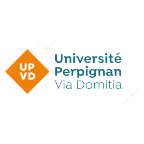
University of Perpignan
In 1350, the King of Aragon founded the University of Perpignan. Characterized by a multidisciplinary approach since its inception, this approach continues to define the University today, some 670 years later.
The University of Perpignan Via Domitia (UPVD) is modestly sized, local and multidisciplinary, and is open to Occitania, Southern Catalonia and to the International world. It is located in an ideal setting, at the centre of three metropolises: Montpellier, Toulouse and Barcelona.
The UPVD has converged its strengths and skills to create a collective dynamic adapted to the challenges of global change. As these changes bring about problems that can only be dealt with in a multidisciplinary manner, the UPVD benefits from undeniable assets and a particularly favourable regional, national and international context.
The academics and research at the University of Perpignan focus on Man within his environment, over a long time period (for 560,000 years, Tautavel) in order to adapt to new constraints, to support expected transitions and to propose future solutions. This work addresses the adaptation of plants to climate change as well as the effects induced in parasitology, the need to develop techniques for restoring fish stocks or the treatment of plastics at sea. Further, we are invested in the invention of the energies of tomorrow, the creation of future regulations to encourage greater sustainability and in the conceptualisation of an evolved concept of Man within his environment.
HAL portal
open science policy

University Toulouse – Jean Jaurès
Founded in 1229, the University earned a great reputation in the 16th century hosting prestigious humanist thinkers such as Rabelais, Michel Servet, Etienne Dolet, Michel de l’Hospital and Montaigne.
In 1808, the institution became an imperial University and consisted of the Faculties of Catholic and Protestant Theology, the Faculty of Humanities, the Faculty of Law, of Sciences, and a School of Medicine.
Reaching its full development in the 20th century, the Faculty of Humanities is transferred in 1968 from the centre of Toulouse to its current location, the newly-built Mirail district which gave its name to the campus.
HAL Portal
Open Science policy
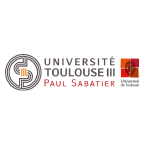
University Toulouse 3 Paul Sabatier
The name of the University Toulouse 3 is a tribute to Paul Sabatier, a scientist born in Carcassonne in 1854. Winner of the 1912 Chemistry Nobel Prize, Paul Sabatier was the dean of the faculty of sciences in Toulouse, and a member of the Académie des sciences. Under the aegis of this scholar, University Toulouse 3 Paul Sabatier is proud to train over 35.000 students and to host 64 research labs.
University Toulouse 3 Paul Sabatier’s roots go back to the 13th century; however, its birth occurs in 1969, when the faculty of Medicine, the faculty of Pharmacy, and the faculty of Sciences merge. The diversity of its laboratories and the quality of the training in sciences, health, sports, technologies and engineering are responsible for the University’s standing in the last 50 years, and rank it among the top universities in the world. It is among the 300 best establishments for scientific performances in the international ranking of National University of Taïwan (NTU ranking).
Read more